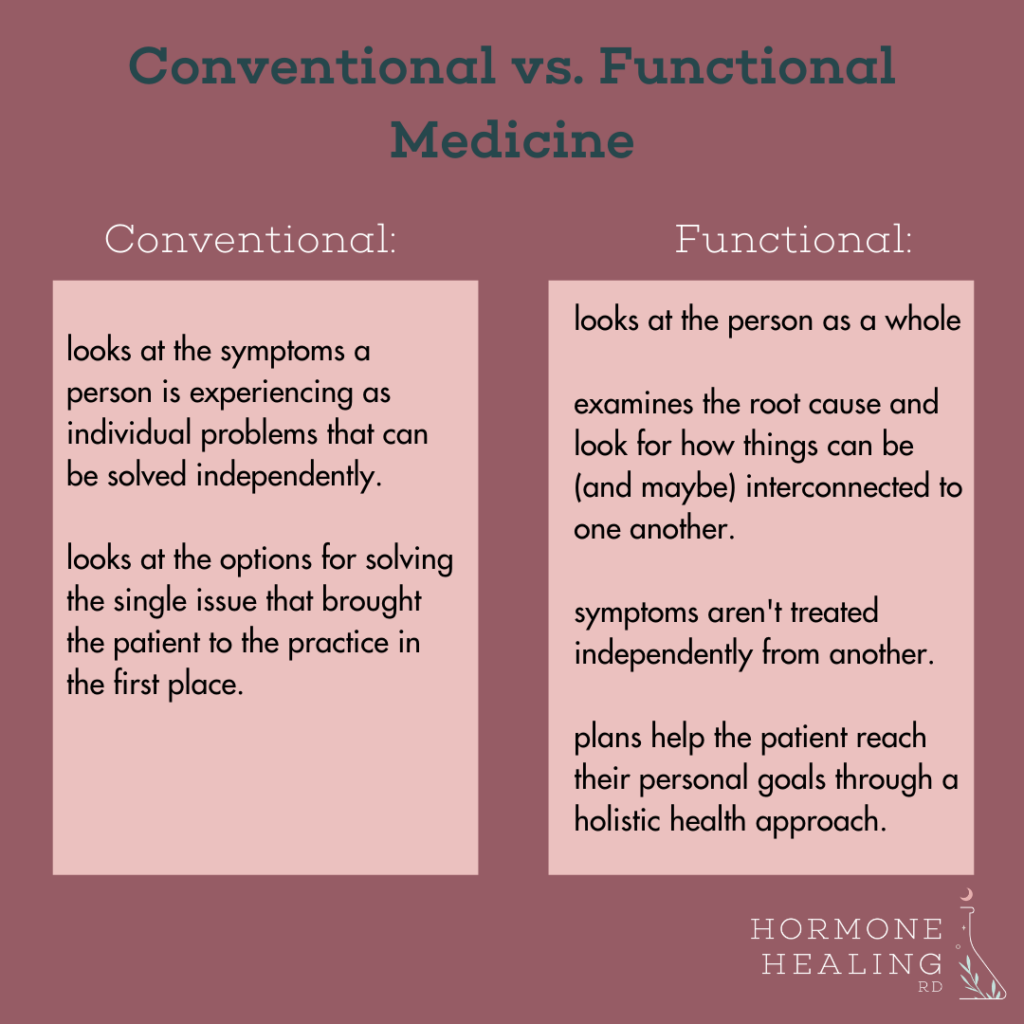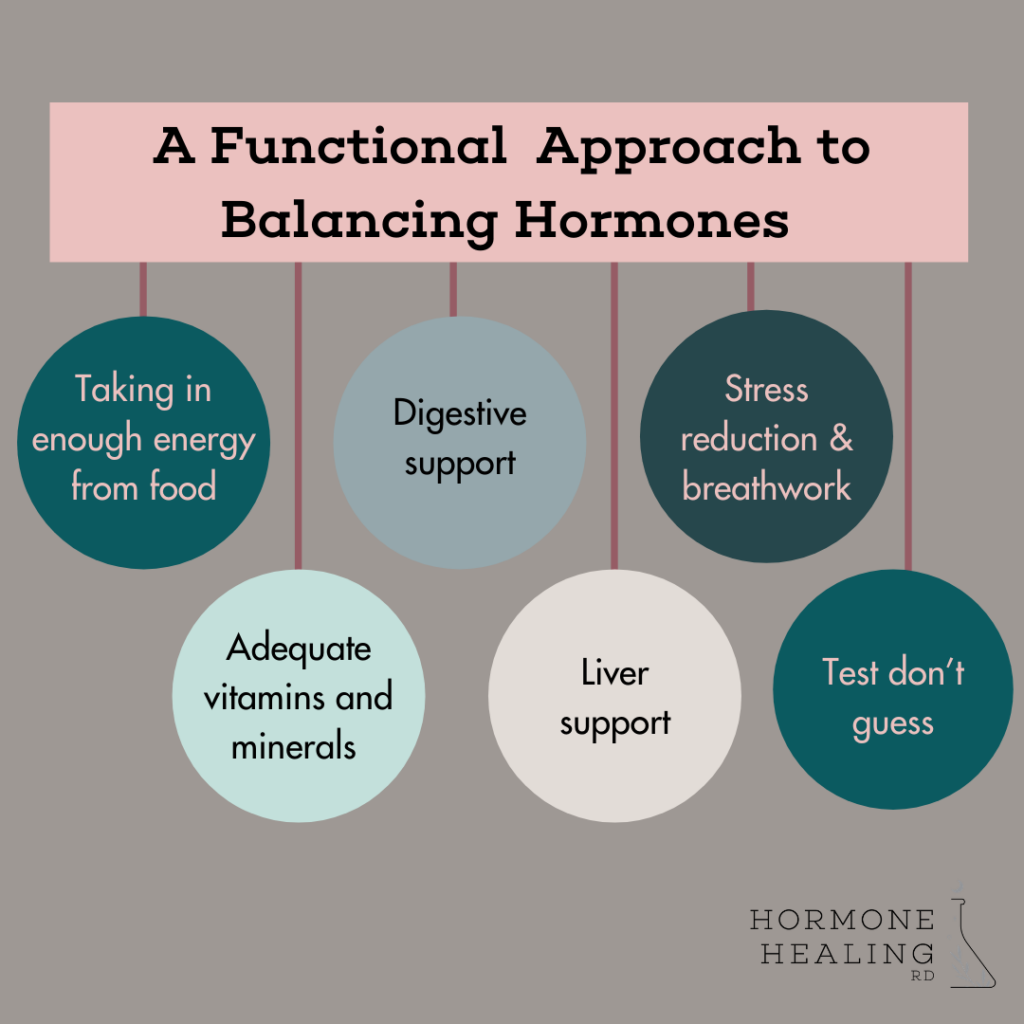When I decided to get off the pill, I struggled a lot. Even though I was familiar with how the pill worked, I was shocked at how difficult the transition off of birth control was on my overall hormones and health. I figured that since I did not want to be on synthetic hormones anymore, I could just stop, and my body would be fine. However, that was not the case.
Instead, my acne got worse, and my period was absent for over eight months. I also experienced a great deal of weight gain, a side effect of stopping hormonal birth control that I definitely was not expecting. But most of all, I was not expecting my doctor to tell me to go back on the pill. I do not know why. I just thought they would want to help me figure this out. Not the case. They did not want to test my hormones or my thyroid, and when they did, it was the same answer: “Go back on the pill, and it will fix all of this.” I felt defeated. I felt ignored. I felt small. I felt as though I was not being listened to. Instead of trying to find the reason for the symptoms I was experiencing, my conventional medicine doctor was hoping to fix everything with one (unwanted) pill. Here’s the issue with this–it was not the doctor’s fault that she did not know how to help me in a way that I felt comfortable with. Why? I was asking a conventional medicine doctor for a functional medicine solution.
What is functional medicine?
Dr. Elizabeth Rice describes functional medicine, in her Hormonal Imbalance, Depression, and Functional Medicine article, as a biology-based approach to healing the root causes of any medical issue. She states that for true healing, all areas of concern must be addressed and corrected. According to the Institute for Functional Medicine, it requires an in-depth understanding of the patient’s genetic, biochemical, and lifestyle factors. It uses the data to personalized treatments leading to improved patient outcomes. Functional medicine is the accurate display of each cause. It depends on the individual’s genes, environment, and lifestyle, and only treatments that address the right cause will have lasting benefits beyond symptom suppression.
What are the differences between conventional medicine and functional medicine?
Conventional medicine is different from functional medicine. Conventional medicine tends to look at the symptoms a person is experiencing as individual problems that can be solved independently. Instead of looking at the ‘big picture,’ conventional medicine often looks at the options for solving the single issue that brought the patient to the practice in the first place. Functional medicine, on the other hand, looks at the person as a whole. They examine the root cause and look for how things can be (and maybe) interconnected to one another. A symptom affecting one body system, then, isn’t treated independently from another. They’re seen as parts of a bigger picture, and a plan is developed to help the patient reach their personal goals through a holistic health approach.

What do I do if my conventional medical treatment is not working for me?
If you want a more functional approach, you have to find someone that is trained that way. We cannot expect a doctor that was taught to use the pill for hormone imbalances to all of a sudden suggest that we look deeper into gut health or estrogen detox for our period problems. Those simply are not the tools they are equipped with. Now, don’t get me wrong; there is nothing wrong with conventional medicine. As a licensed dietitian, I use both conventional and functional medicine in my practice as I feel there is a time and place for both when it comes to treating patients. However, I have also seen first hand the challenges of working with a conventional medical provider to solve a functional medical problem.
How does functional medicine help with hormone health?
Functional medicine aims to improve symptoms by addressing why each woman is uniquely imbalanced and reduces risks in the safest options available. The very first step in formulating a plan of care is to measure thyroid function (or dysfunction). Most conventional methods for testing thyroid function may produce “normal” results. The functional approach looks more closely at the production, transport, conversion, and cell sensitivity of adrenal, thyroid, and sex hormones. Adequate sleep and exercise, reducing stress, and supplements are some suggestions your functional medicine practitioner may suggest. Other strategies for balancing your hormones using functional methods:

One of the best things you can do if you’re having a hard time transitioning off hormonal birth control is partnering with someone that understands the nuance of hormone health and how to support you with an integrative approach. A functional medicine practitioner is trained to help you identify the root causes of your problems and not merely treat your symptoms. For a functional and holistic approach to healing your hormones (without the hefty price tag that comes with seeing a Functional Medicine Doctor), check out my Master Your Minerals Course. In it, we teach you how to interpret your own HTMA and build a hormone-healing protocol based on your unique results.
